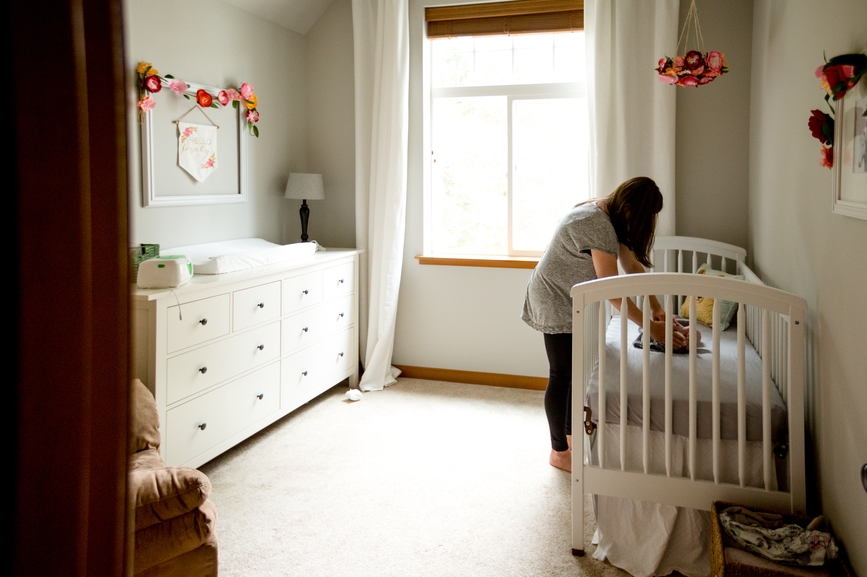Written by Ashley Kane,
Brightside Health
4 Minute Read

Medically reviewed by:
Erin O'Callaghan, PHD
Director of Therapy
10 Minute Read

When you have a new baby at home, there is a lot that demands your attention. Whether this is your first child or not, it’s natural to feel the mental health impact of all these sudden changes.
A common worry from many new parents is that there is something wrong with them or they are not good enough. This is a struggle that many parents encounter and it can be challenged with reframing strategies—a skill a licensed therapist can help you with.
Whether you’re concerned you’re not good enough (odds are that if you’re invested enough to be worried about being a good enough parent, you probably are one!), you’re feeling really stressed or anxious, or you’re wondering if you’re experiencing a postpartum mental illness, you’re in the right place. Support is available.
Postpartum mental illness: What to look out for
Many new parents may experience hormonal changes that lead to mood swings before and after childbirth. According to the Anxiety & Depression Association of America (ADAA), 80% of new parents are affected by these “baby blues.” Usually, symptoms resolve within a couple of weeks. If not, you may be experiencing a postpartum mental health condition like postpartum depression.
Postpartum mental health conditions
Here are some postpartum mental conditions to be aware of:
- Postpartum depression
- Postpartum obsessive-compulsive disorder
- Postpartum anxiety
- Postpartum post-traumatic stress disorder
- Postpartum bipolar disorder
Ways to get postpartum mental health care
Consider these four ways to get postpartum mental health support.
Therapy
Whether you’re experiencing a condition like postpartum anxiety or depression, or you’re simply feeling overwhelmed and need help, therapy is a good place to start.
During therapy sessions, your therapist will listen to your concerns and work with you one-on-one to develop a treatment plan that will help you reach your goals. Over time, you can learn evidence-based skills and strategies that help you reframe thoughts, manage symptoms, and pursue more valued alternative behaviors. You can also put your skills into practice in your daily life and discuss any challenges you’re facing in weekly sessions and unlimited messaging. You’ll have support by your side every step of the way.
Psychiatry
If your symptoms are impacting your day-to-day life, you might also consider meeting with a psychiatric provider. Your psychiatric provider can work with you on a treatment plan, which may include medication, to help you feel better. At Brightside Health, our psychiatric providers use our PrecisionRx tool to analyze data and over 1,000 medication combinations to recommend the right medication for your needs—so you can start feeling like you again.
Psychiatric providers also monitor your treatment over time and can manage medication, refills, and dosage adjustments, if needed.
Self-care
Another key aspect to postpartum mental health care is self-care. When you become a parent, you may feel overwhelmed or think a lot about what your baby needs. However, it’s important to not forget about what you need. Practicing self-care daily—actions or habits that are for your wellness alone—can help you improve and protect your mental health.
Whether it’s eating nutritious foods, taking a walk outside, enjoying a hobby, or prioritizing sleep, taking actions for your health can help you replenish your energy before you give to others. If you are co-parenting with a partner, you might consider working together to align schedules so you can both prioritize something for yourselves each day. You can learn more about self-care here.
Support network
Having people around you who support you is important throughout life and is especially crucial when you become a new parent. If there are friends, family members, or other people in your life offering to help you, lean on your support network and take them up on the offer.
Whether it’s a listening ear, help with laundry, or assistance with grocery shopping, try to ask for what you need and name one helpful action others can do to support you when they offer help. If you’re looking for community support, you might consider joining a group for new parents or taking a class. You can view state-by-state resources here.
Get started with the right treatment for you
No matter how you’re feeling, remember that you’re not alone. If you notice differences in your mental health postpartum, the best thing you can do is reach out for support. Mental health practitioners can work with you to find the combination of postpartum mental health care for your needs.













